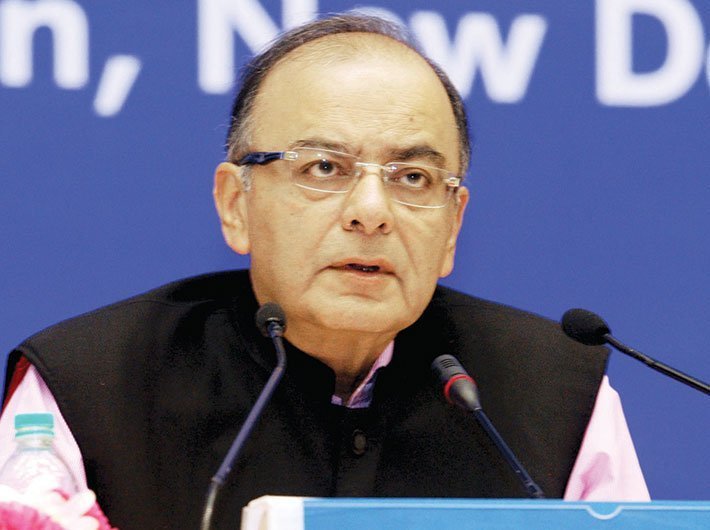The Bharatiya Janata Party is today going to town over the Goods and Services Tax (GST). But, there was a time in the recent past when the party opposed it tooth and nail, with the Gujarat government, then led by Narendra Modi, describing it as “retrograde in nature and completely against the tenets of fiscal federalism”.
From putting up an exceedingly strong resistance to the GST to now championing its benefits, it has been a complete U-turn for the BJP.
We recall what the BJP had said.
On February 20, 2011, Yashwant Sinha, a senior BJP leader and chairman of the Parliamentary Standing Committee on Finance, bluntly said: "They are doing a wrong thing."
Sinha said several states, including those ruled by the BJP, were opposed to introduction of the GST because of their own interests and not due to any partisan issue, reported
Hindustan Times.
"It is not Gujarat, it is Madhya Pradesh, which has been strongly opposing GST from day one,” added Sinha.
On October 23, 2013, the Narendra Modi-led Gujarat government opposed the UPA government's attempt to pass the 115th Constitution Amendment Bill, 2011 to enact GST regime.
Gujarat minister Saurabh Patel, who attended the the national empowered committee meeting, said, "If the union government through an ordinance enacts the GST regime, Gujarat will have to bear Rs 14,000 crore loss per annum due to the destination based taxation principle."
Patel said that Gujarat is facing a severe problem of realization of revenue due to economic slowdown. "Yet the Centre has not yet released the pending compensation of Rs 4,500 crore. This issue should be resolved instead of moving towards the constitution amendment. As suggested by the standing committee, broad consensus has not been arrived at on key issues concerning the implementation of GST,"
The Times of India quoted him as saying.
Not just that. On August 4, 2010, the Gujarat government made a detailed written submissions before Empowered Committee opposing GST, the Congress
said.
It said: “The proposed constitutional amendment has come at a time when consensus is lacking even within the Empowered Committee on many features of GST….. This amendment fundamentally alters powers of the States to levy and collect indirect taxes.
“The power to determine rate of taxes is a basic function of legislative body like Parliament or, as the case may be, State Legislature. Article 265 very clearly states that no tax shall be levied or collected except by authority of law. Thus, provisions of proposed Article 279A runs counter to the existing provisions of Constitution. I find it difficult to agree to wide ranging powers given to GST council. These powers shall remain within legislative and administrative purview of State and cannot be ceded to the council as it will take away entire financial autonomy of the State.”
Again on February 11, 2011, the Gujarat government stated: “The new constitutional amendment draft proposed by the GoI is retrograde in nature and completely against the tenets of fiscal federalism…… Therefore, Gujarat does not support the proposed constitutional amendment in its present form.”
Prime minister Narendra Modi admitted in parliament on August 9, 2016 that he did have doubts about the GST, reported
NDTV.
Modi said that that his experience as a chief minister who had doubts about the GST, made it easier for him to address those issues as prime minister.
In a discussion in the Lok Sabha, Congress leader Mallikarjun Kharge said, "Those who are passing the GST now, why were they opposing it when they were in the opposition?
"I had many doubts. I had discussed it with Pranab Mukherjee many times," PM Modi said in his speech, referring to the President who was then finance minister in the UPA government.
The Narendra Modi government has now managed to resolve some of the sticking points.
Finance minister Arun Jaitley, at an event organized by ABP on June 27, said: “The country will benefit from the new indirect tax regime.”
Crude oil, natural gas, aviation fuel, diesel and petrol have been excluded and Jaitley said that while negotiating with the states on GST there were some “tough” issues like petroleum and potable alcohol on which states were unwilling to leave their taxation powers.
“If we insisted on that, then the deal would have been broken. The Constitution amendment provides that petroleum products can be taxed under GST as and when GST Council decides. And once GST is implemented, in 1-2 years once again the Council will get opportunity to revisit it,” Jaitley was
quoted as saying.
